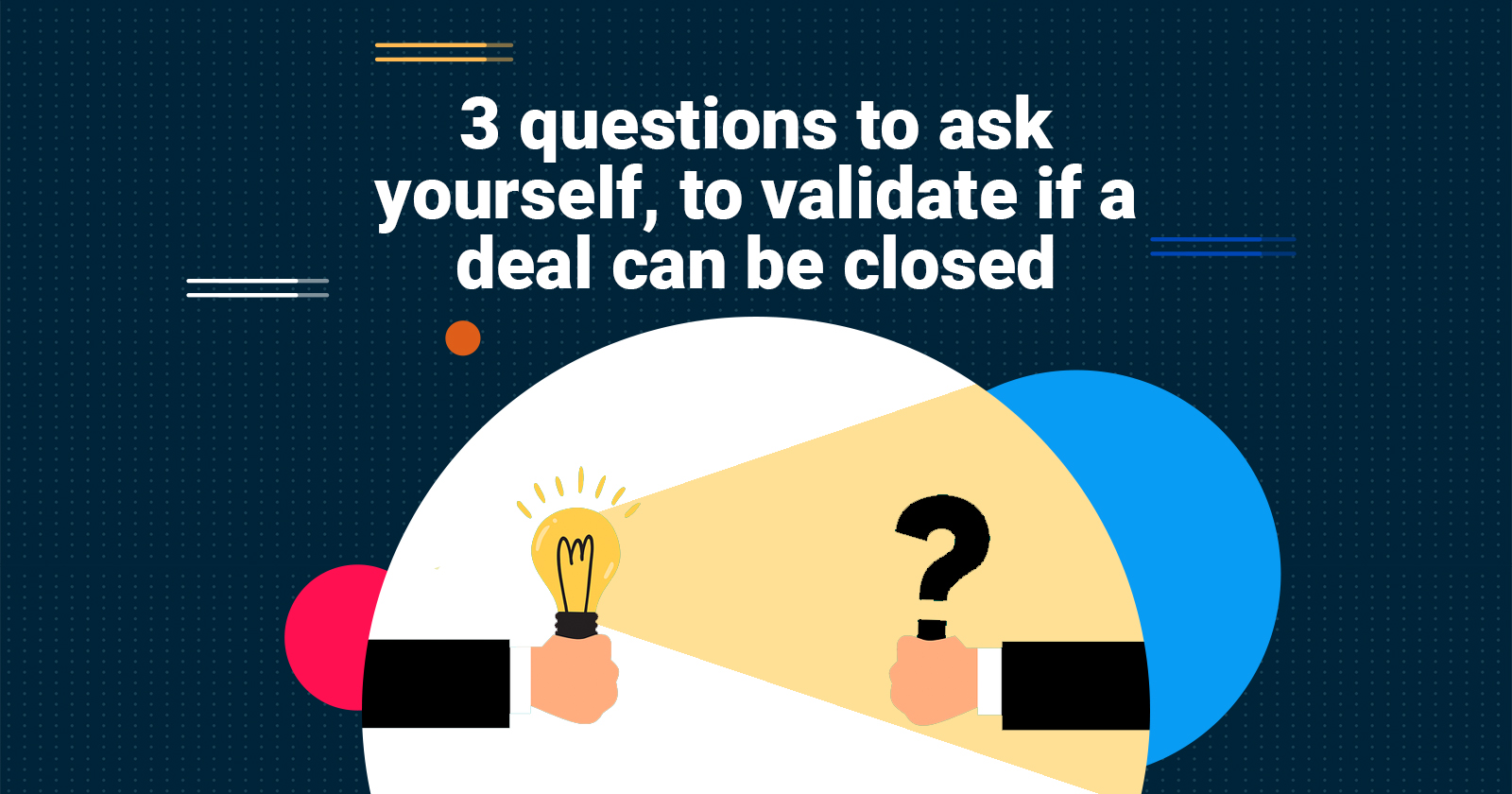
We are usually more optimistic than not – it is simply how our brain is wired and is called optimism bias. As such, many times, unless a client outrightly rejects us, we might feel like a deal can be struck. Of course, there is no shame in being optimistic. In fact, this is how we stay motivated and keep our chin up! However, it is also important to be able to identify the hot deals and cold ones, so you know where to channel your energy. So… we hope the following three questions can help you decide what’s hot and what’s not
“Um… well … they just know they need it.”
When you ask yourself this question, and the answer is along the lines of “Um… well … they just know they need it.”, then the deal is actually more shaky than you think it is. As an intermediary, of course there needs to be a certain sense of confidence in the product or quote you have offered to your client, and also have faith in your charisma and the service you have provided. But, do you really know the reason why the client wants what you have offered? For the insurance intermediary to feel confident about a deal, they should also be able to answer this question BECAUSE they already have a comprehensive understanding of the client’s needs. So when you ask yourself this question, the answer should be clear… It could be ‘because the quote pricing I have offered is the most competitive’ or ‘because the coverage provided in the quote is what my client will feel at peace with’ or a combination of both.
“Follow up next week to discuss next steps and timelines on when this can be signed…”
Once again, if your answer is similar to the above, then it immediately says that in fact, it is not clear if the deal will be done, and there is not a deadline. If you have not set firm timelines and expectations with your clients, then it is easy for the client to see that your time is not very valuable – which cannot be further from the truth! Your time is valuable. As such, make this clear to the client, which will also give you a sense of clarity on whether a deal is solid or not, by spelling out and sticking to firm timelines. If your answer to this question is something along the lines of… ‘The client needs to begin operations on [X date], so he will need a policy no later than [Y date]. I have presented his quote options to him on [Z date] and he has mentioned he will confirm in two days’ time.’ …then you can be a lot more confident that this is a hot deal. In the case where the timelines are not met, at least you will have further clarity that this deal might not materialise the way you envisioned it. It is important to understand who is the ultimate decision maker(s). Although with life insurance, more often than not, you will be speaking with the insured party, it might not be the case when it comes to commercial insurance, where a coverage is purchased for a business. You might be speaking to one of the bosses or influencers of the business, but it is very valuable to be able to identify the person who will be signing off and have them be involved early on. So… when you hear a ‘I think we are good to go’ from the person who will be signing off, it is a lot more solid. This means that the chance that there is going to be a side, internal discussion, not involving you, is lower and would also mean that a change of heart is more unlikely. It is fuss-free. No credit card or payment required.1. Why are they looking to buy our product/service?
2. When are they looking to start?
3. Is the decision maker onboard?
Are you an Insurance intermediary? Sign up for free now!
Subscribe to our Telegram channel to get the most insightful articles delivered to you automatically!
